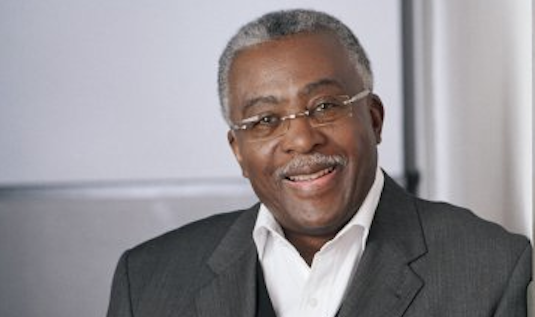Richard Steele, who’s been a warm, wise and engaging presence on Chicago radio since the early ’70s, is retiring after 27 years with public radio WBEZ FM 91.5.
Chicago Public Media announced Friday that Steele, 72, would step down October 10 from his full-time position as program host and correspondent.
“It has been my privilege to work with such a great Chicago talent at WBEZ,” Sally Eisele, managing editor of public affairs for WBEZ, said in a statement. “On air, he has helped shape the very sound of Chicago Public Media. Behind the scenes, he has been a great mentor to his colleagues and will leave behind a large legacy that we will benefit from for years to come.”
But retirement doesn’t mean Steele will leave the airwaves entirely. He’ll continue to host “The Barber Shop Show,” the weekly talk show he tapes at Carter's Barbershop in the North Lawndale neighborhood. It airs Fridays and Saturdays on Vocalo and Sundays on WBEZ.
Born Richard Slaughter in Brooklyn, New York, Steele graduated from Hirsch Metropolitan High School on Chicago’s South Side and landed his first full-time job as program director and on-air personality at WTOY in Roanoke, Virginia, in 1968.
His Chicago radio resume encompasses a wide range of formats and stations, starting in 1970 at the former WGRT, where he became known as “The Real Steele” and served as program director when the station was relaunched as WJPC. Other stops included WBMX, WVON, WGCI AM and FM, and WVAZ FM 102.7, where he kicked off the station’s urban adult-contemporary format as its first morning personality.
Steele joined WBEZ as a part-time jazz host in 1987 and went on to anchor many of the station’s most popular music and talk programs, including “The Richard Steele Show,” “Talk of the City” and the flagship newsmagazine “Eight Forty-Eight.”
“I owe a debt of gratitude to [former program director] Ken Davis who hired me, believing that I had the capacity to shed the trappings of a commercial radio music personality, and become a ‘connoisseur of content,’ ” Steele said in a statement. “I’m also grateful to the multitude of great colleagues I’ve worked with and learned from. Their powerful influence helped me to become a better broadcaster.”


